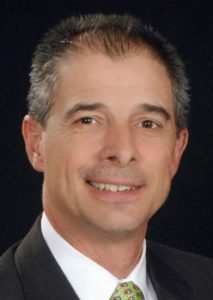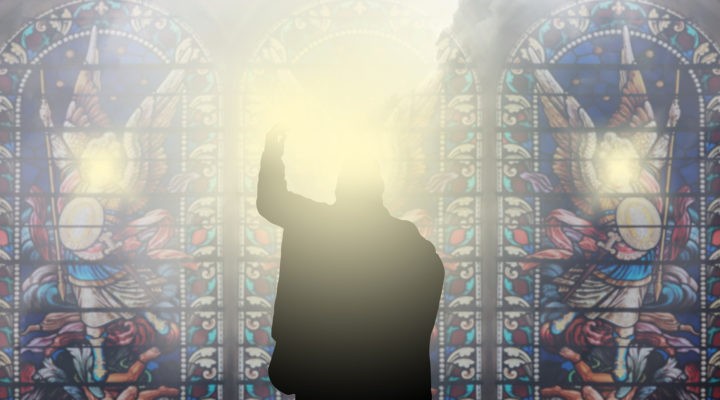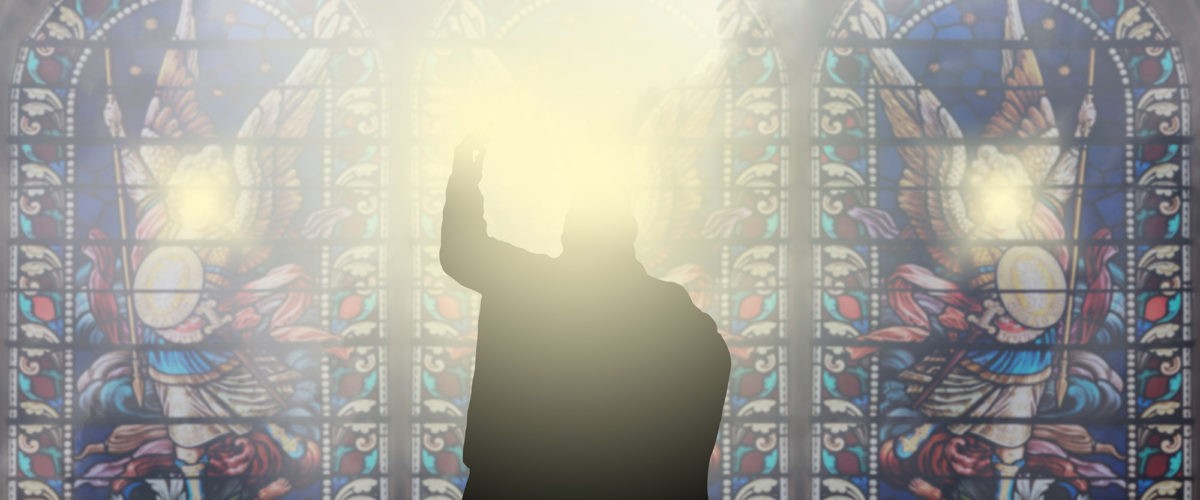“God is not omnipotent. There. I’ve said it.”
I haven’t published the book yet, but my manuscript, titled The Power of the God Who Can’t: God Always Does Everything God Can Do, begins with those words. When the late Frank Tupper said those words in his systematic theology class at Southern Baptist Theological Seminary 30 years ago, some of the air went out of room.
As I recall it, a lively disagreement followed. His words never have left me. That (once) radical notion, that maybe there are things God actually cannot do, has become the center of my theology. It may not be the prevailing unorthodoxy, but I believe the idea has the power to change the world.

Russ Dean
It might just save the church in the process.
You see, the God who can (do anything, everything, anywhere, anytime) has a lot for which to answer. And those “true believers,” whose theology revolves around such blind faith, have a lot to defensively explain away:
- God could have changed the course of history, nullifying the Middle Passage that took the lives of as many as 20 million Africans, bound for enslavement in their “New World,” but that just wasn’t in the divine plan.
- God could have intervened in the Holocaust, but 6 million people died because God looked the other way.
- God could stop child abuse, domestic violence, human sex trafficking; God just chooses not to.
- And, who are we to know why? God is God. We’re not.
Is that really what we believe? God could, but chooses otherwise? I think any parent who could do such things, would. Every. Single. Time. Any reasonable parent.
If God could, surely God would, too.
Of course, many people do believe God actually is the Giant Force in the Sky. They believe God can answer any of the desperate pleas of devoted “prayer warriors,” performing miracles, turning the tornado from the path of their own homes (even if the tornado just destroyed the homes of three praying neighbors). Many people do believe this.
“Faith may extend reason, surpass reason, complement reason. It need not contradict it.”
For a church trying to present a reasonable message to a rational, scientific world, I find this unfortunate.
Yes, faith is “the assurance of things hoped for, the conviction of things not seen” (Hebrews 11) — so faith may extend reason, surpass reason, complement reason. It need not contradict it. And the theological gymnastics required to explain where the all-loving God is, what the all-powerful Being is doing (besides any of the things a loving parent would do) are not endearing the church to the modern world.
In a 21st century world, guided by the wisdom of the enlightenment and its scientific revolution, clinging to the God who could but just mostly chooses not to, will sound increasingly out of touch. Our affirmations of God must resonate with what we actually see and experience in the world. If the church cannot give the world a theology that better resonates with actual reality, faith will sound more and more like deluded fantasy, fanatical religion.
In 1953, J.B. Phillips wrote a book titled Your God is Too Small — and he did not know the half of it. If Christians in a scientific world are going to have any chance at making a case for God, our understanding of the divine is going to have to get much, much bigger.
“Our understanding of the divine is going to have to get much, much bigger.”
In 2006, Time magazine published a dialogue between Francis Collins, leader of the human genome project, and the outspoken atheist and evolutionary biologist Richard Dawkins. In the interview, “God vs. Science,” Collins made a consistent case for the God I once knew, a God revealed in Jesus Christ, but a divine power mostly far removed from the scientific context (ironically, the venue for this dialogue with Dawkins). In the end, the argument sounded a lot like, “Well, you just have to believe it.”
I never have appreciated Dawkins’ caustic cynicism, his disdain for faith, but he ended up speaking for me better than did the world’s most outspoken evangelical scientist. Dawkins finally allowed that science cannot prove or disprove God, and “if there is a God,” he said reluctantly, “it’s going to be a whole lot bigger and a whole lot more incomprehensible than anything that any theologian of any religion has ever proposed.”
Amen to that kind of God. (Although I believe that is precisely the kind of God many theologians have proposed, for a very long time.)
I was explaining my view to a friend recently, and he could not wrap his head around any affirmation of “God” that did not include a full-throated affirmation that God literally created the world out of nothing (despite what the science now says). Surely that kind of God could do anything, any time— right? But the inability to conceive of any other kind of God does not disprove or deny God, it just proves the failure of human imagination (“a whole lot bigger and a whole lot more incomprehensible”).
“The inability to conceive of any other kind of God does not disprove or deny God, it just proves the failure of human imagination.”
You see, as big an idea as it is, a Being outside of space and time with enough power to create an infinite material universe is an idea of which I can actually conceive. Can’t you? He’s “the man upstairs,” the Supernatural Being who is beyond us but who actually looks a good bit like us. Given our predilection for the power to control everything around us, this kind of God is actually pretty understandable.
Augustine once said, “If you have understood it, it is not God,” and I think we can understand “all-powerful.” What we cannot even begin to understand is a God not intrinsically defined by omnipotent force, but who is still the source of life, the author of meaning, the subject and object of purpose, that which gives a telos (direction) to the world.
God is not all-powerful. God is “a whole lot bigger” than that.
Maybe God is even bigger than we can imagine, even more grand than some Supernatural Being, the Cosmic Judge, the Divine Sheriff in the sky. Maybe God really is, as Jesus said, “Spirit” (John 4). Not a Spirit or the Spirit, just Spirit. (Life. Light. Hope. Joy. Justice. Beauty. Meaning. Spirit.) Maybe God is bigger than a Being of Divine proportion, “a whole lot bigger.”
We will not have to relinquish God to let go of the All-Controlling Divine Force we have loved for so long, that fearful, all-powerful deity we have known, but we will have to let go of our insecure need to explain things simply, to write a supernatural cause and effect over every happening.
God is not all-powerful. God is love. Isn’t that what Jesus has shown us? And, given what science can tell us about the material universe, doesn’t that message actually make a lot more sense?
God always does everything God can do.
God is not all-powerful.
God is love.
God always does everything Love can do.
Russ Dean serves as co-pastor of Park Road Baptist Church in Charlotte, N.C. He holds degrees from Furman University, Southern Baptist Theological Seminary and Beeson Divinity School. He and his wife, Amy, have been co-pastors of Park Road since 2000. They are parents of two sons. Russ is active in social justice ministries and interfaith dialogue. He is author of the new book Finding A New Way.


